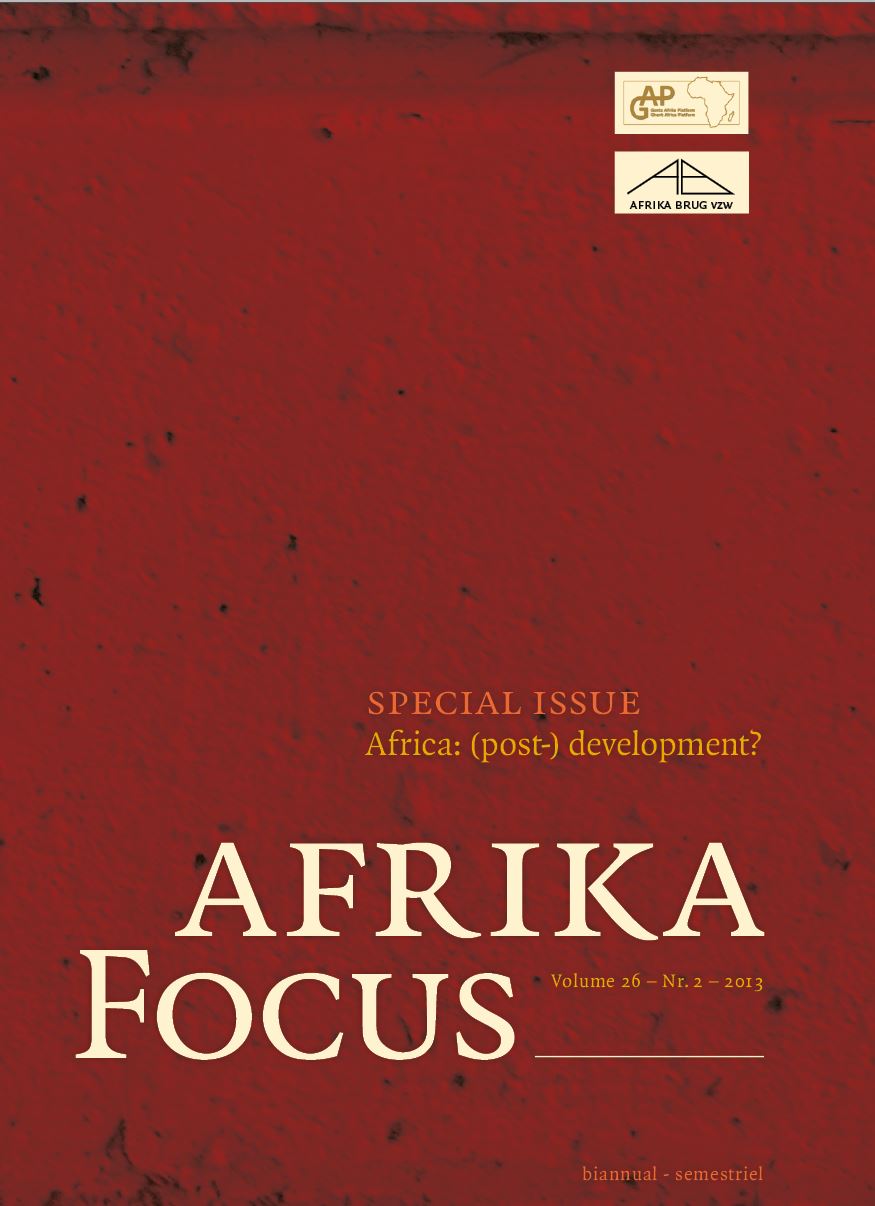Performance, poverty and urban development: Kigali’s motari and the spectacle city
DOI:
https://doi.org/10.21825/af.v26i2.4908Abstract
In this paper I explore tensions and conflicts over poverty reduction and urban development in Kigali, Rwanda’s capital in terms of theories of performativity. On one hand, motorcycle taxis offer large numbers of young men good livelihoods – reflecting the government of Rwanda’s stated commitment to poverty reduction, especially amongst youth; on the other, motorcycle taxi drivers suffer harassment at the hands of city authorities and police, who are keen to eradicate motorcycle taxis from the urban scene altogether. I interpret this tension as a conflict over the appropriate performance of development in the city; I argue that in pursuit of urban development, the city itself becomes an image, projected in order to attract the investment which will give body to the simulated spectacle that Kigali present. Conflicts between the city and motorcycle taxi drivers erupt because motorcycle taxis cannot perform to the aesthetic standards of the new Kigali. In conclusion, I suggest that the rendition of Kigali’s development as image has broader lessons for studies of development in general. Specifically, these conflicts expose the operation of images and their performance as political resources, conferring intelligibility and legitimacy in the spectacle of national development. Key words: Rwanda, poverty reduction, urban development, performativityDownloads
Published
How to Cite
Issue
Section
License
Authors who publish with this journal agree to the following terms
Authors retain copyright and grant the journal right of first publication with the work simultaneously licensed under a Creative Commons Attribution License that allows others to share the work with an acknowledgement of the work's authorship and initial publication in this journal.
Authors are able to enter into separate, additional contractual arrangements for the non-exclusive distribution of the journal's published version of the work (e.g., post it to an institutional repository or publish it in a book), with an acknowledgement of its initial publication in this journal.
Authors are permitted and encouraged to post their work online (e.g., in institutional repositories or on their website) prior to and during the submission process, as it can lead to productive exchanges, as well as earlier and greater citation of published work (See The Effect of Open Access).


